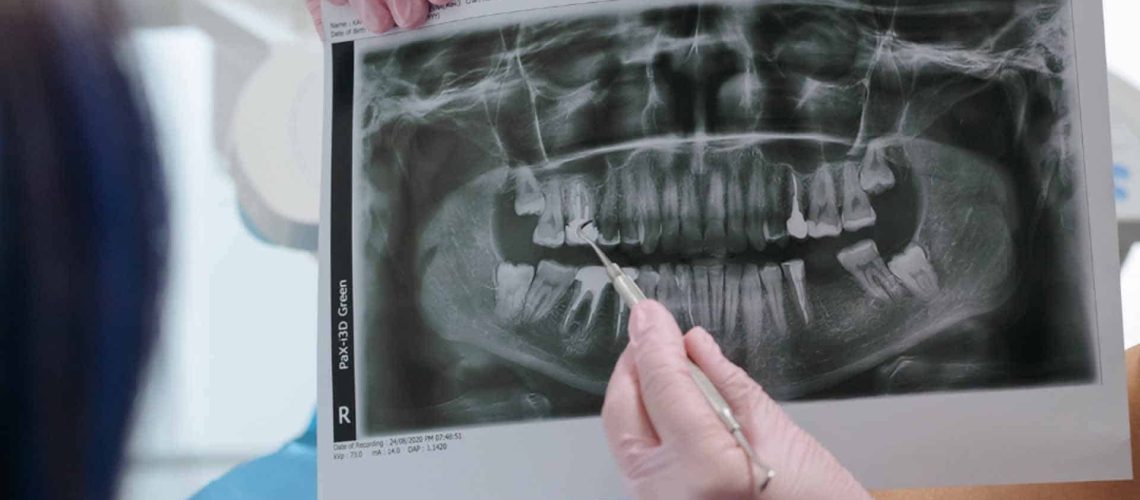Wisdom teeth are also known as third molars, as they are the last teeth to emerge. Talking about wisdom teeth may frighten both children and adults because removing them requires surgery. Fortunately, modern technology and years of improving the operation have enabled us to make wisdom tooth extractions a frequent treatment with minor discomfort during healing.
What are wisdom teeth?
Wisdom teeth are the third and final set of molars that most people get in their late teens or early twenties. Sometimes these teeth can be a valuable asset to the mouth when healthy and properly aligned, but more often, they are misaligned and require removal.
Benefits of wisdom tooth removal
Wisdom teeth that are misaligned may be horizontal, inclined toward or away from the second molars, or slanted inward or outward. Wisdom teeth that are not properly aligned might crowd or harm neighboring teeth, the jawbone, or nerves.
Wisdom teeth can be impacted, which means they are enclosed in soft tissue and/or the jawbone, or they just partially break through or emerge through the gum. Partial wisdom tooth eruption permits germs to infiltrate around the tooth and produce an infection, resulting in pain, edema, jaw stiffness, and overall disease. Because of their difficult-to-reach location and uncomfortable orientation, partially erupted teeth are therefore more prone to dental decay and gum disease.
At what age should wisdom teeth be removed?
There is no “ideal age” to have your wisdom teeth removed. Some of us receive these teeth as adolescents, while others don’t get them until adulthood. So, if you have wisdom teeth, should you have them out now or wait? Unfortunately, there is no straightforward solution because there are other aspects to consider. However, most dentists recommend having them removed at a younger age. Dentists prefer to extract wisdom teeth after two-thirds of the roots have formed. The removal of the third molars is easier at this period, as is the healing. Patients are at a higher risk of problems during and after the extraction process after the roots have fully formed.
Does everyone need their wisdom teeth removed?
Your wisdom teeth only need to be removed if they are causing you difficulties. Not everyone is born with wisdom teeth, which prevents a section of people from receiving wisdom tooth removal. A complete dental exam will evaluate for existing and prospective issues with your wisdom teeth and will determine whether you require a removal operation.
So, who needs their wisdom teeth extracted? If you have any of the following symptoms, your wisdom teeth may need to be extracted:
Your wisdom teeth have been impacted (stuck beneath your gums)
Your wisdom teeth erupt just partially from your gums.
You don’t have enough space in your jaw for your wisdom teeth.
On the other hand, you may not require your wisdom teeth removed if you meet the following criteria:
They have completely emerged and are in good health.
They have no effect on neighboring teeth by crowding your jaw.
Your wisdom teeth emerged straight.
You are able to brush and floss them without difficulty.
What happens if I don’t have my wisdom teeth removed?
Some people have no detrimental consequences from their wisdom teeth. However, many people do not have enough room in their mouths for their wisdom teeth to properly develop, which can lead to a variety of problems. Wisdom teeth that are impacted, or those that do not have enough room to grow in, can cause irritation, cyst development, and movement of neighboring teeth.
What if I didn’t get my wisdom teeth out when I was younger?
If you are above the age of 30 and need your wisdom teeth removed, be warned that you may have a lengthy recovery time. This is because the roots of your wisdom teeth have grown and gotten embedded in the thick bone of your jaw. This complicates the procedure and, as a result, leads to a longer healing process. However, wisdom teeth removal at any age is still the best option for most people in order to avoid future dental complications.
Wisdom tooth removal process
A dentist will tell you whether your wisdom teeth need to be removed. The diagnosis is simple, and wisdom teeth removal is a regular surgery. The surgery is carried out in a dentist’s office and you can also leave on the same day. If workable, take a few days off to cope with any soreness or discomfort as your gums heal. Tenderness and soreness are typical, but they will go away in a few days if properly cared for. Pain relievers, cold compresses, and avoiding solid meals will all help. Most people can resume their normal daily activities within a week.
To learn more or to schedule an appointment for Idaho Falls dentistry services, call or contact Sunnyside Dental Center today.

